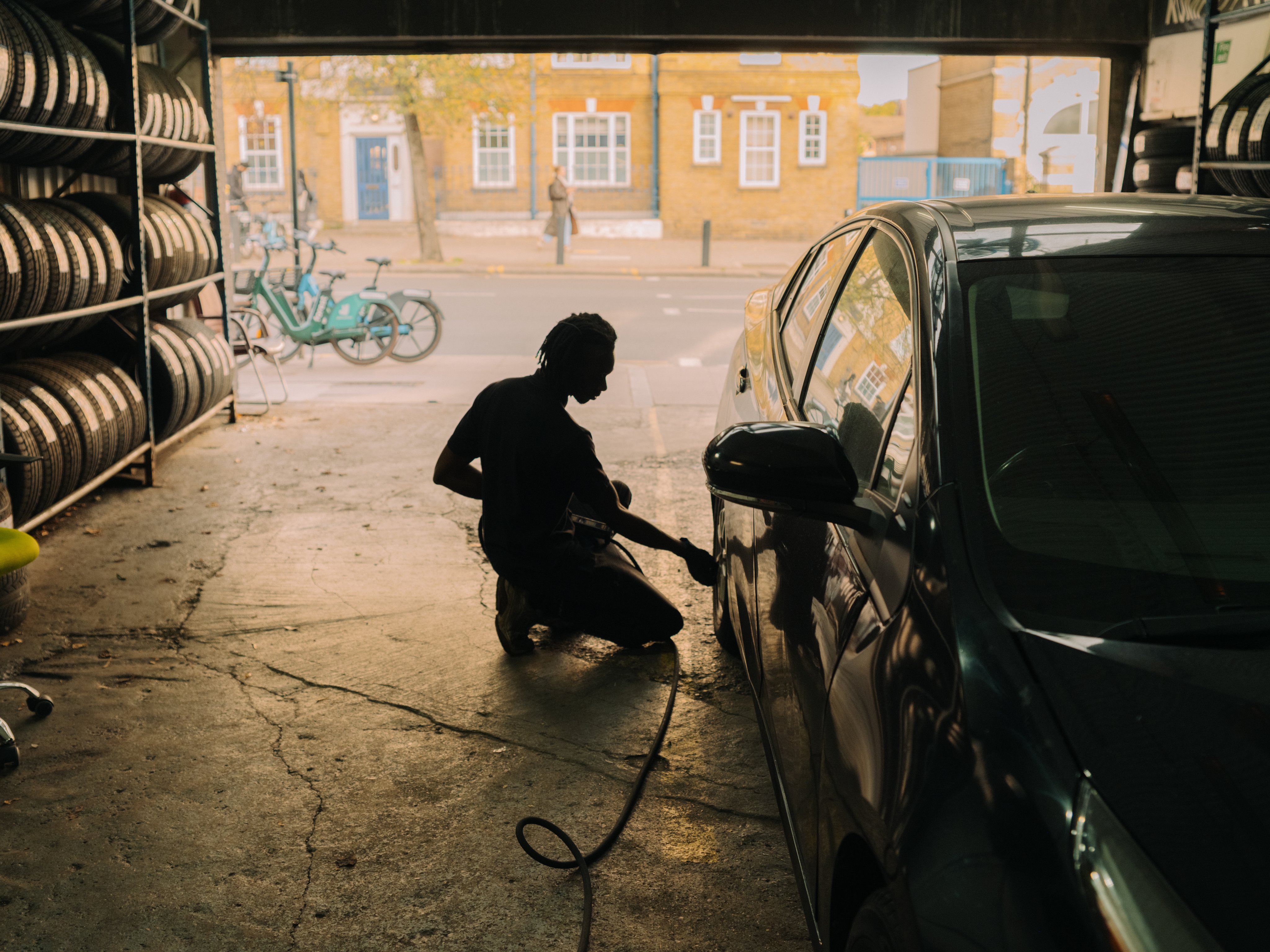How the Employment Rights Bill can make jobs work
Work is not a route out of poverty for many in the UK, even though wages for people on low pay have increased. The Employment Rights Bill is a chance to change that.
There are around 4 million workers in our country who go to work and yet still find it hard to make ends meet. Among these 4 million will be people in a wide range of jobs – from working in hospitality, to providing essential care in residential homes, or working as (often outsourced) cleaners and porters maintaining our hospitals. Politicians often tout that work is the best route out of poverty, but for these workers, a worrying number in the labour market, the words ring hollow.
The reason is not just low pay – in fact, the story of the minimum wage has been one of real success in raising the floor of wages for workers (though there is more to do – as shown by the Real Living Wage movement). It is those who can’t access the benefits of this pay growth who have been left behind.
There are 3 key groups of people who fall into this category:
- Workers with insecure and unpredictable hours and earnings: not being able to get enough working hours remains a key problem, and there is a strong overlap between low pay and insecure work, as well as low pay and part-time working.
- People with care responsibilities or health needs who face barriers to working, or working as many hours as they want to: the UK’s supply of flexible work lags far behind demand, while income protection for people who need time off work for caring or health is weak. People, generally women, end up reducing their hours or temporarily dropping out of the labour market altogether. At JRF, we found that unpaid child care ultimately results in a gross pay penalty of £100,000 over the course of 6 years on average, as a result of lost earnings due to providing care – and 97% of these unpaid child care givers are women.
- Workers who don’t always receive what they’re entitled to: for example, the Low Pay Commission estimates that around 370,000 UK workers may have been underpaid the minimum wage in April 2024. Beyond wages, others still won’t be receiving other basic rights that they’re entitled to – the Resolution Foundation finds that 900,000 workers report not receiving paid holiday, while 1.8 million report not receiving a payslip.
This is not to say full-time workers don’t also find themselves struggling to get by – as costs have risen, pay has not always kept up with spiralling inflation. But our figures are clear – it is those who can’t work more hours, either because they can’t or the hours aren’t available, who face a particularly high risk of poverty: JRF’s latest analysis finds that part-time workers faced a poverty rate nearly triple that of full-time workers (22% compared with 8%).
That’s why the Employment Rights Bill (ERB) is so important. It’s aimed at tackling in-work poverty by raising the minimum standards for work. It better supports the incomes of people who currently have to take unpaid leave to care for their children, who can’t get the hours they need to earn a decent wage, or have to take unpaid time off if they get sick.
Where the minimum wage supported hourly pay, the ERB will support incomes. The changes in the ERB should help people:
- have more secure incomes, through access to contracts reflecting the hours they typically work, better notice of work, and compensation for shift cancellation
- stay attached to the labour market when they need to look after loved ones, with stronger entitlements to parental leave
- have their incomes supported when they need time off work for ill health and recovery, through the removal of statutory sick pay eligibility criteria which currently exclude the lowest earners, and the removal of waiting days so that people receive support from day one
- better balance work with care responsibilities and health needs, through ensuring employers can only refuse flexible working requests if it’s reasonable to do so, and requiring them to clearly set out the rationale for refusals.
To ensure the success of these transformative reforms, the Government needs to make sure firms are supported to take them up, particularly for essential services like care and childcare where providers are struggling with delivery costs.
The ERB represents the biggest shift in workers’ rights in a generation, and should deliver more security for workers facing poverty. But there is further to go.
First, ensuring the Fair Work Agency has teeth. The ERB’s improvements to workers’ rights are essential. But rights on paper need to be rights in practice for people across the UK – and this needs proper enforcement. The new Fair Work Agency needs to have real teeth, including through proper funding and resource invested in it to prevent bad employers from undercutting good ones. As a key step, we need to invest in more labour market inspectors who can proactively enforce workplace rights – to help those who face the highest barriers to standing up for their own rights, and level the playing field for good business. More widely, effective labour market enforcement needs to better guarantee disabled people’s rights to reasonable adjustments at work, ensuring more disabled people have access to good quality jobs that meet their needs.
Second, making sure the UK’s workers have better protections if their circumstances change – if they’re caring, fall ill, or have to manage a health condition. Currently, the safety net available to workers is a weak one (meaning a big hit to your income). To have an economy where everyone who wants to work can, we need to better protect people’s incomes when they have to take time off for caring or ill health. This means reviewing the shockingly low rate of statutory sick pay and improving care leave – starting with paternity leave, where the current entitlement is meagre and locks out low-paid self-employed workers.
And third, moving towards people having a genuine, day one right to access feasible forms of flexibility at work - so that people who need to balance work with health needs or care responsibilities can have access to good quality, flexible working from day one on the job. Making flexible working the genuine default is crucial to helping expand employment for disabled people.
For too long, the promise of work being a route out of poverty has not been kept, even as wages for people on low pay have increased. The Employment Rights Bill is a chance to change that, and help the lives of workers in poverty as a result.

This comment is part of the work topic.
Find out more about our work in this area.

